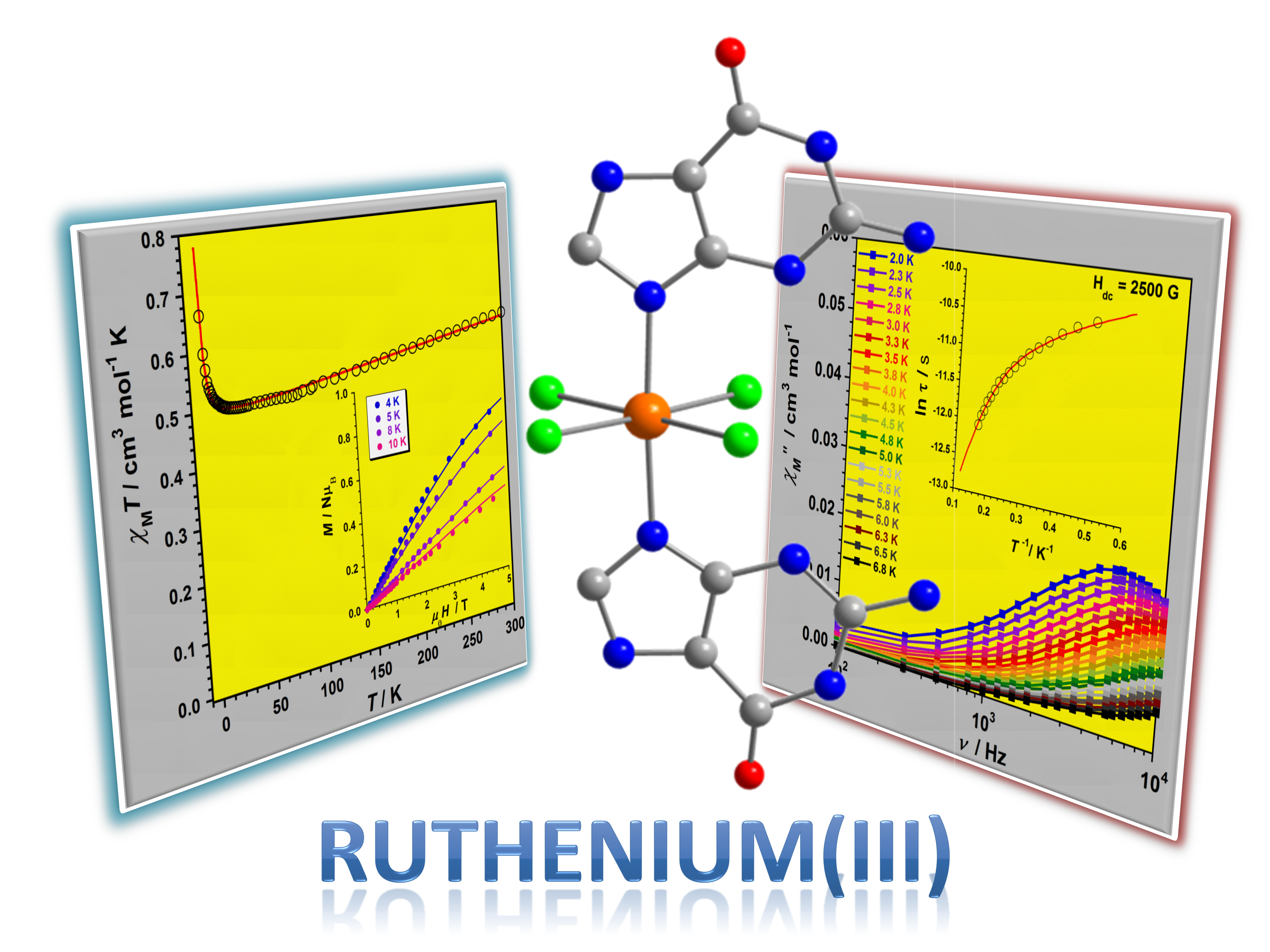Two mononuclear Ru(III) complexes of formula trans-[RuCl4(Hgua)(dmso)]·2H2O (1) and trans-[RuCl4(Hgua)(gua)]·3H2O (2) [Hgua = protonated guanine (gua), dmso = dimethyl sulfoxide] have been synthesized and characterized magnetostructurally. Compounds 1 and 2 crystallize in the monoclinic system with space groups P21/n and Pc, respectively. Each Ru(III) ion in 1 and 2 is six-coordinate and bonded to four chloride ions and one (1) or two (2) nitrogen atoms from guanine molecules and one sulfur atom (1) of a dmso solvent molecule, generating quasi regular octahedral geometries in both cases. In their crystal packing, the Ru(III) complexes are self-assembled mainly through an extended network of N-H⋯Cl hydrogen bonds and π⋯Cl type intermolecular interactions, forming novel supramolecular structures based on this paramagnetic 4d metal ion. Variable-temperature dc magnetic susceptibility measurements performed on microcrystalline samples of 1 and 2 show a different magnetic behavior. While 1 is a ferromagnetic compound at low temperature, 2 exhibits a behavior typical of noninteracting mononuclear Ru(III) complexes with S = 1/2. Ac magnetic susceptibility measurements reveal slow relaxation of the magnetization in the presence of external dc fields only for 2, hence indicating the occurrence of field-induced single-ion magnet (SIM) phenomenon in this mononuclear guanine-based Ru(III) complex.

